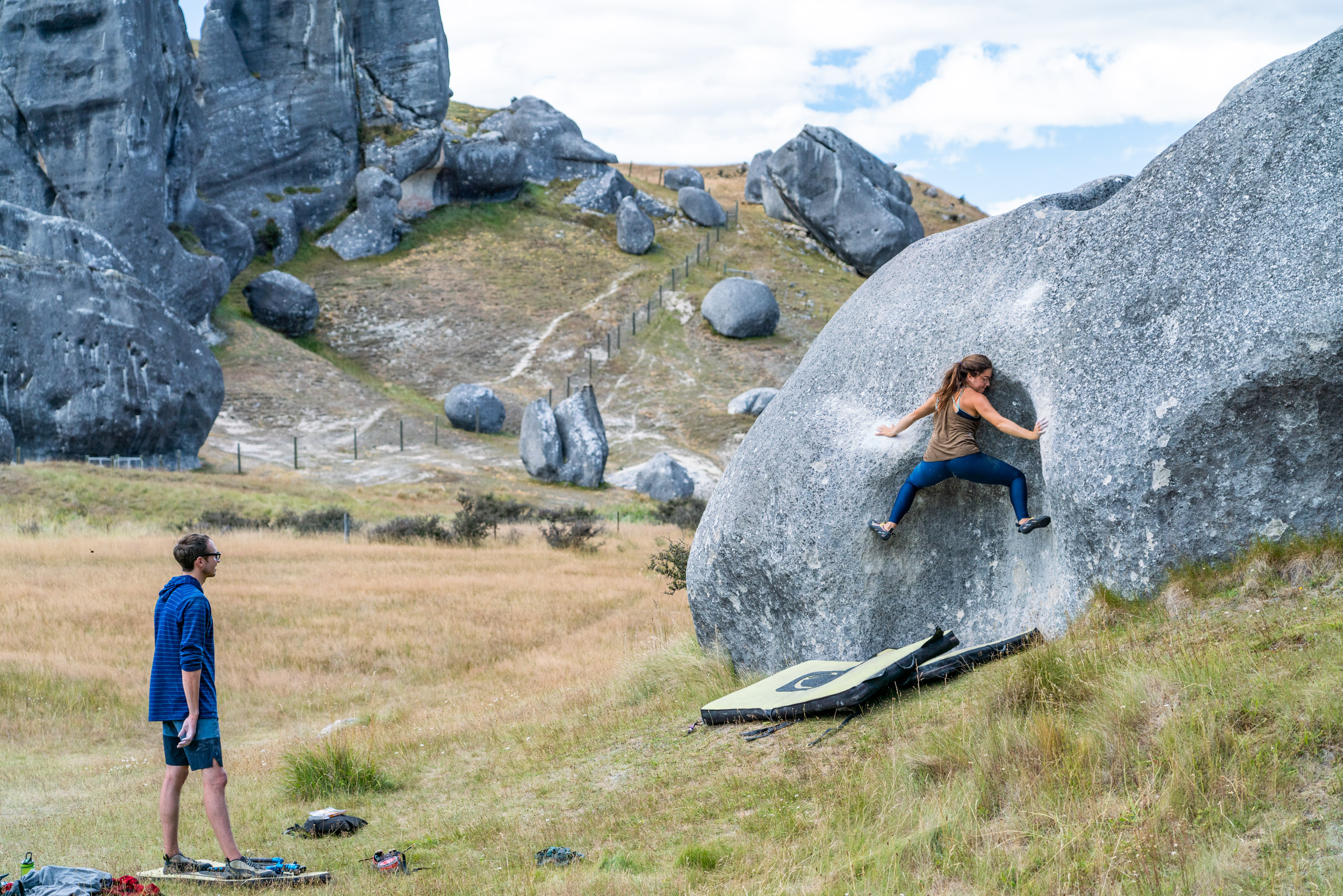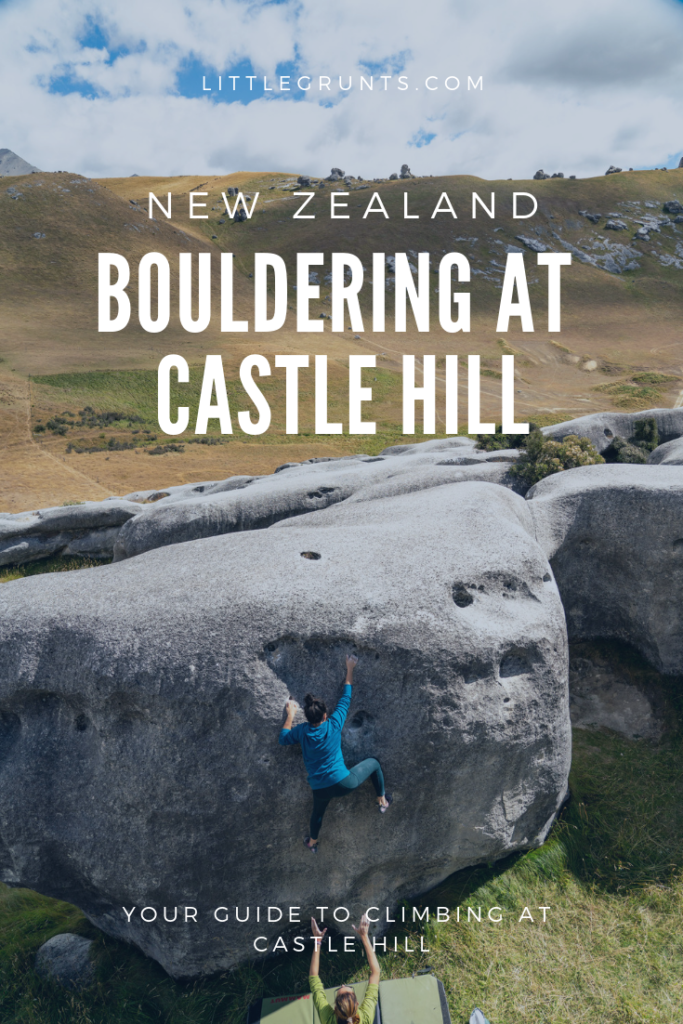
If you’ve come to New Zealand, looking for rocks, then look no further. Castle Hill bouldering is a premiere climbing destination. Or at least it should be, with thousands of problems within a ten minute walk of the parking lot (or car park, as the kiwis call ’em).
We spent two and a half days romping around Spittle Hill and Quantum Hill. We’ve got all the beta for bouldering Castle Hill.

When to climb at Castle Hill
Winter has the best temps, but it may be cold and there may be snow.
You can never go wrong with spring or fall.
Summer, the high season in New Zealand, is less than ideal. Polished limestone in the hot, beating sun means everything is glassy. There’s no friction. There’s relatively no shade.
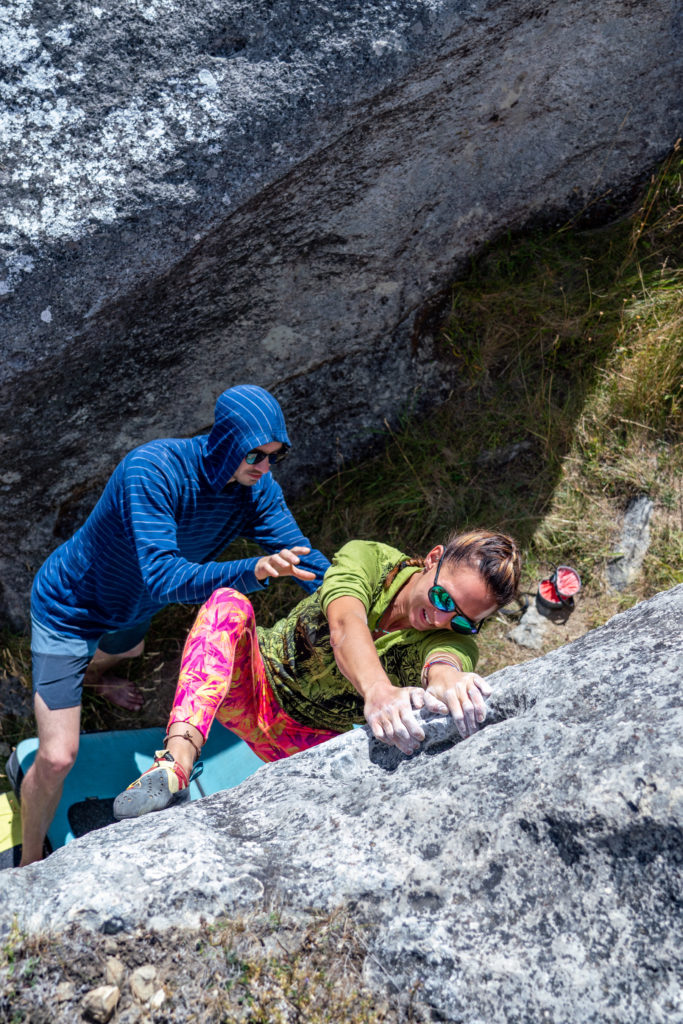
Where to rent crash pads for Castle Hill
If you’re not coming to New Zealand specifically to boulder, chances are you didn’t lug your crash pad with you internationally. Fear not, you can rent crash pads from Smylies on your way into Castle Hill from Christchurch.
Their pads are all by Edelrid. The largest is the Edelrid Crux pad. They also have a handful of smaller pads. Crux pad rentals start at $18 NZD per day and gets cheaper the more days you rent.
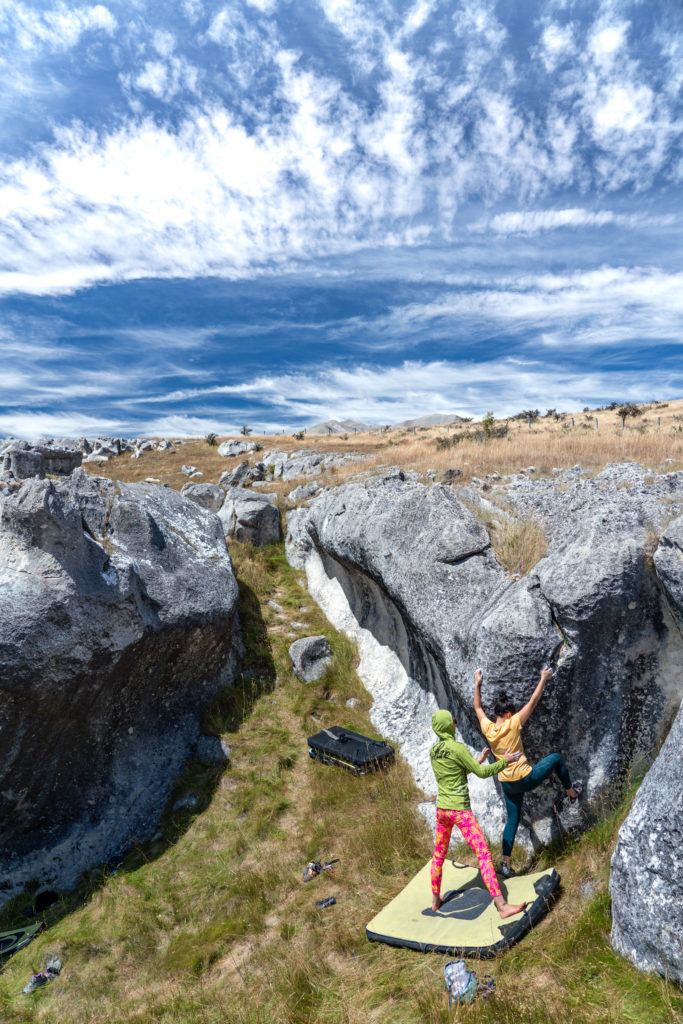
Forgot your shoes? Smylies rents shoes too, starting at $10 per day.
Smylies also rents the Castle Hill bouldering book for $10 NZD per day. The guide is $60 NZD. It’s not an amazing guide, and not really worth keeping. Smylies will buy it back from you if it has minimal wear and tear.
The front desk is not always staffed, so time your pick up carefully. There is always someone available between 8-10AM and 5-9PM.
Bivouac Outdoor in Christchurch may also rent crash pads.
What to bring to Castle Hill
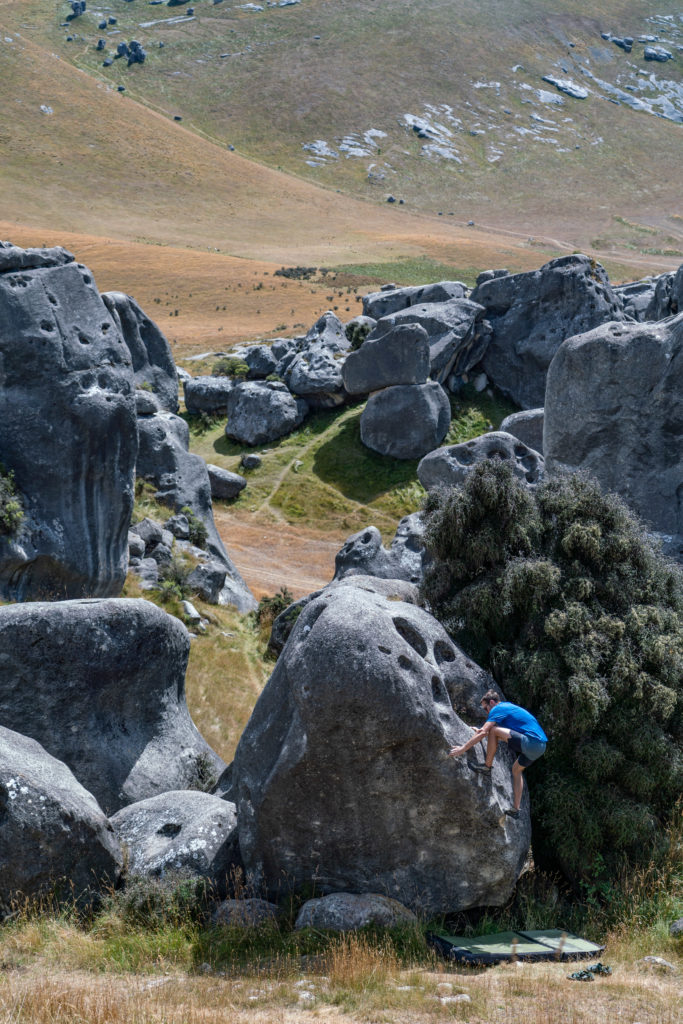
Aside from the obvious climbing gear, here’s a list of things that might come in handy for your time at the boulders:
- Water! Bring lots of it! There’s no potable water and there’s no shade. It can get hot, hot hot.
- Sunscreen! Keep your skin youthful and cancer-free. The sun here is fierce.
- Comfy shoes. Leave your approach shoes behind and grab your sandals. The approaches are all super mellow.
- Mantle skills. You better be good at mantling, or learn how to quick. These topouts are no joke.
Where to stay near Castle Hill
The closest spot to stay is at Porters Lodge. It’s approximately a 15 minute drive to the Castle Hill car park and has unlimited WiFi (unlike Forest Lodge). Lights out is at 10pm, though, when the generator turns off. Three styles of room and board are available: private room, shared, or camping.
We stayed during February. We booked a private room, but in hindsight, should have booked a shared room. There was literally nobody at the lodge.
If you have a camper van or are sleeping out of your car, there are four sites available, with hookups. This is the most cost-effective option, and you’ll have full access to the lodge, minus beds, of course.

Porters Lodge also has a small restaurant on-site. If you’re too lazy to cook, or if you didn’t bring any cookware, this is a good option to stay fueled.
The busy season for Porters Lodge is winter, since the ski area is right there. Weekends tend to be fairly packed with Christchurch weekend warriors and tourists as well. Mid-week in the summer, we had almost the entire place to ourselves.
Summer rates are cheaper than winter rates. Check their website for most up-to-date prices. To book, get in contact with Porters Lodge.
Other places to stay include the Smylies Hostel in Springfield (30 min), Forest Lodge (15 min), and AirBnBs in Castle Hill Village (approx. 10 min).
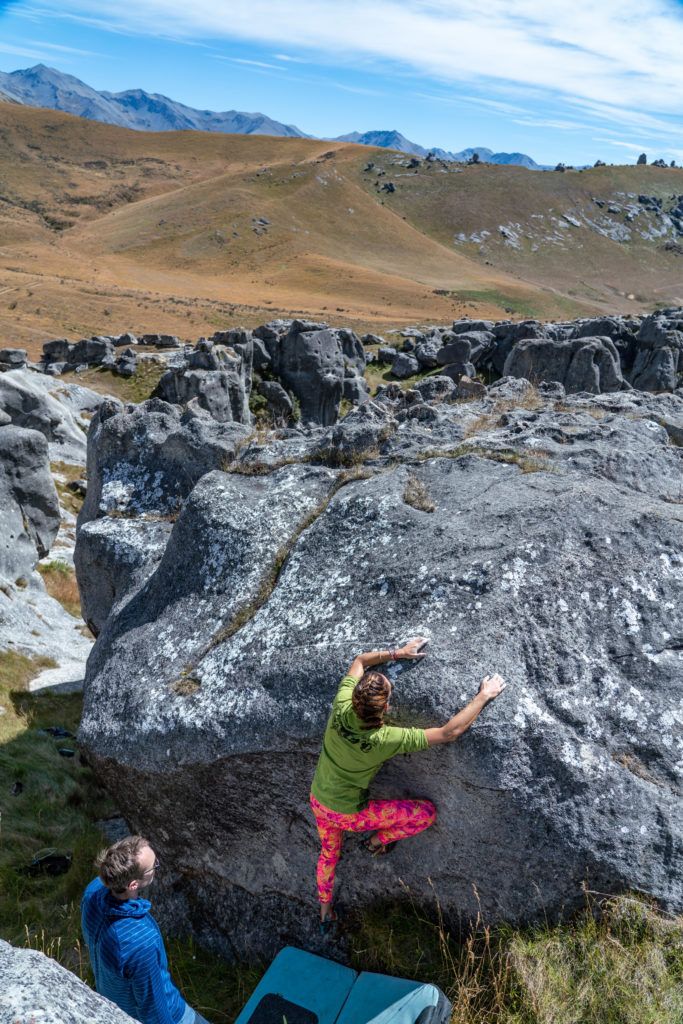
Which climbs are the easiest at Castle Hill?
Climbing at Castle Hill is hard. Grades are sandbagged. The rock is polished and glassy. Expect to get shut down.
We made the most of our trip by climbing everything obscure, which meant it still had texture.
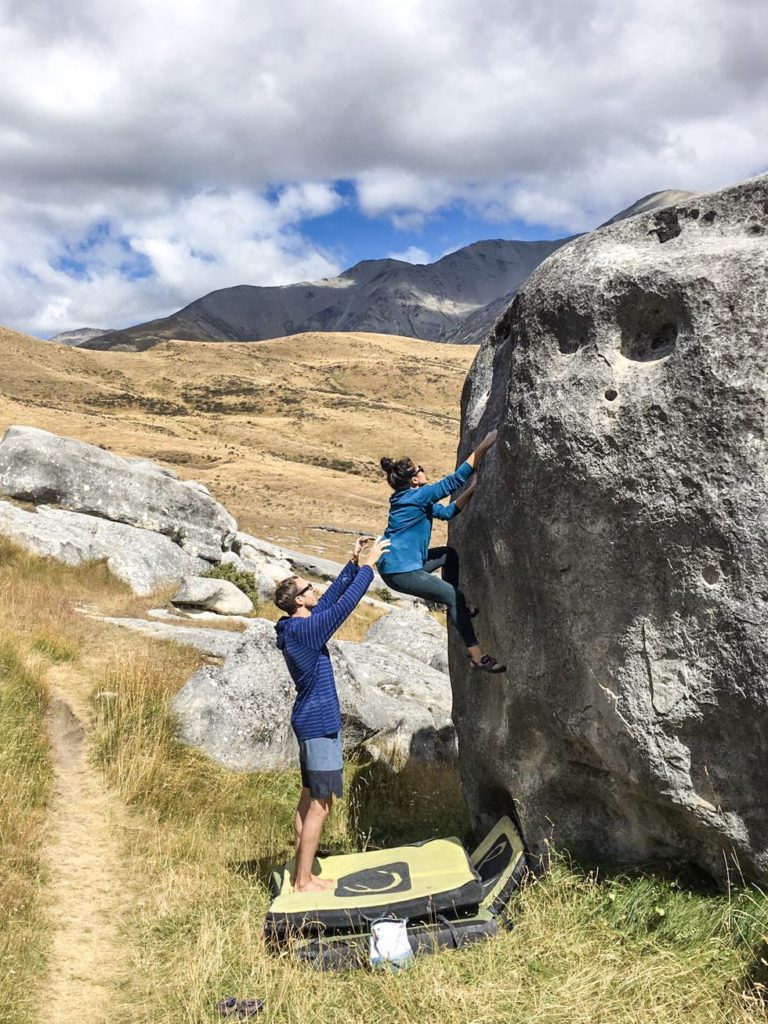
Some of our favorite (by favorite, I mean, places we could actually climb stuff) spots were…
- Connect Four at Spittle Hill (Map 11)
- Beautiful Edges (classic & polished) and Stand Start at Spittle Hill (Map 3). There’s also some really obscure and cool warmups near here, on Map 1, too.
- Curvature at Quantum Field (Map 30). Map 30 also had some fun V0-1 warmups.
- Hobie at Quantum Field (Map 1)
Castle Hill Basin is an awesome resource for identifying boulders. It’s best to cross-reference with the guidebook though, since it’s definitely not comprehensive unless you climb V8+. The Crag is another resource and follows the book more closely, though most of the areas are not mapped. If you want to pick up the book before you go, knock yourself out.
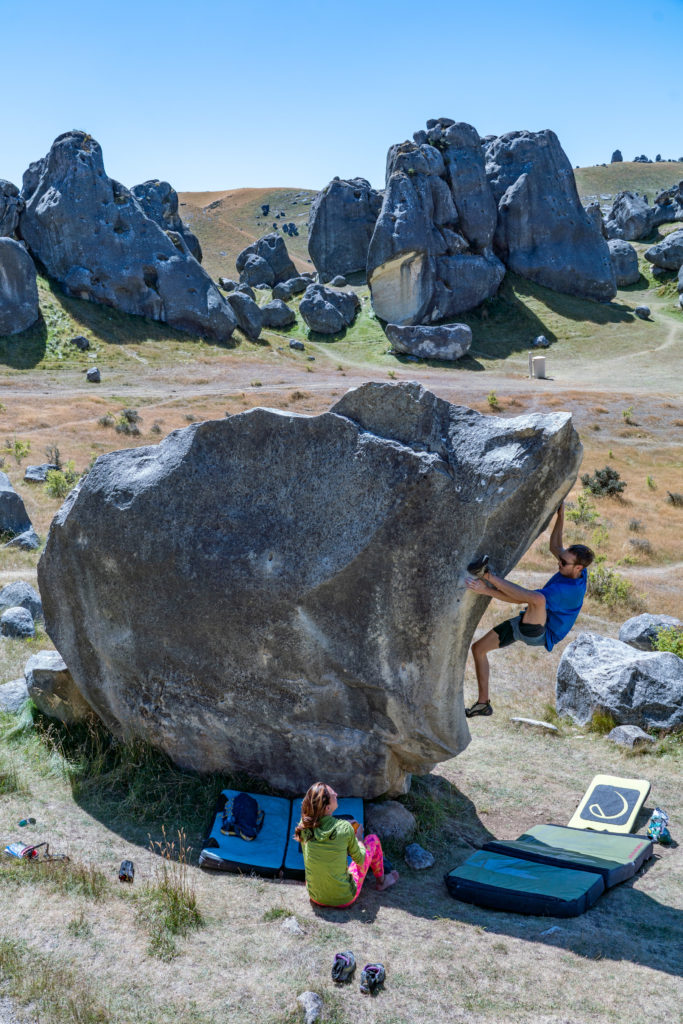
Despite being terrible and hard climbing–I hate slopers, compression, and mantles–I would go back to Castle Hill in a heartbeat. Castle Hill bouldering is so beautiful and picturesque, who cares if you get shut down?
Last updated on November 11, 2019.

